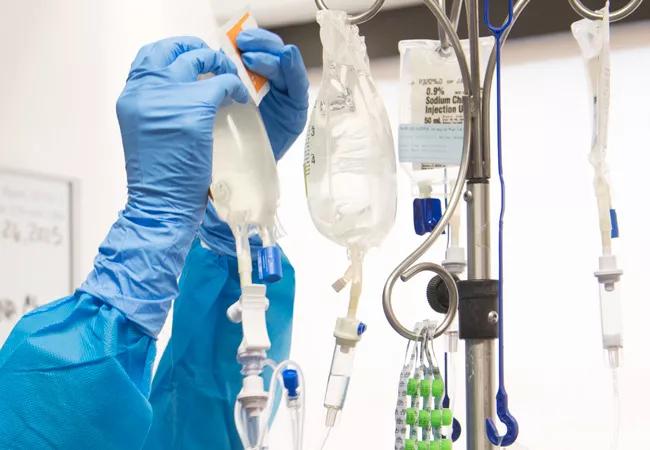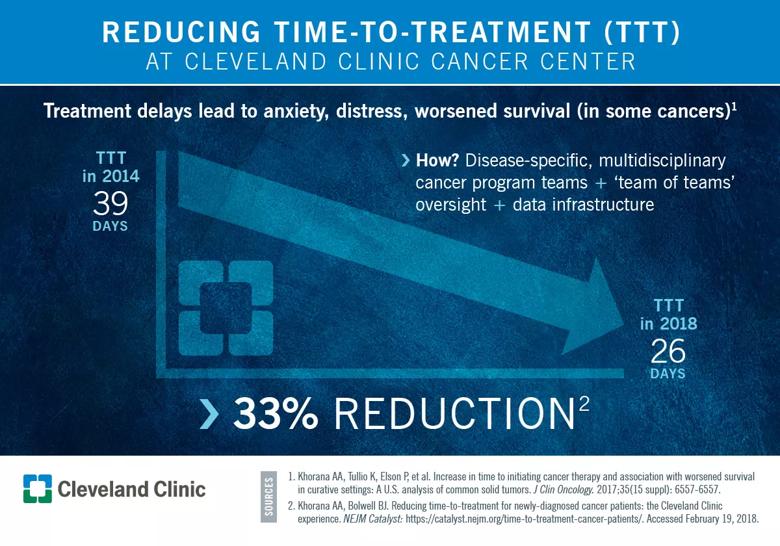Our process and results

The time between a cancer diagnosis and the initiation of treatment can be lonely and anxious for patients. Shortening this critical interval is a complicated logistical problem, but benefits patients medically and psychologically, thereby improving outcomes and adding value.
Advertisement
Cleveland Clinic is a non-profit academic medical center. Advertising on our site helps support our mission. We do not endorse non-Cleveland Clinic products or services. Policy
“In addition to its impact on outcomes, delayed time-to-treatment [TTT] can cause unnecessary stress and anxiety for patients,” says Brian Bolwell, MD, Chairman of Cleveland Clinic Cancer Center. “Coordinating care is difficult, particularly in academic cancer centers, but once you take the time to identify all the hurdles and address each of them, progress in TTT is achievable.”
Cleveland Clinic cancer programs have made reducing TTT for cancer patients a priority, an effort that began four years ago. A recent article in NEJM Catalyst coauthored by Dr. Bolwell and Alok A. Khorana, MD, details the approach that reduced TTT 33 percent overall, to 26 days. The goal is less than 20 days.
“Physicians need to commit to multidisciplinary care and form integrated practice units that focus on patients,” says Dr. Khorana, Director of Cleveland Clinic Cancer Center’s Gastrointestinal Cancer Program. “TTT needs to be measured and emphasized, and we must understand what is important to each individual patient and not assume we already know.”
Check out a summary of the results below and read the full article here.

Advertisement
Advertisement

First-of-its-kind research investigates the viability of standard screening to reduce the burden of late-stage cancer diagnoses

Global R&D efforts expanding first-line and relapse therapy options for patients

Study demonstrates ability to reduce patients’ reliance on phlebotomies to stabilize hematocrit levels

A case study on the value of access to novel therapies through clinical trials

Findings highlight an association between obesity and an increased incidence of moderate-severe disease

Cleveland Clinic Cancer Institute takes multi-faceted approach to increasing clinical trial access 23456

Key learnings from DESTINY trials

Overall survival in patients treated since 2008 is nearly 20% higher than in earlier patients